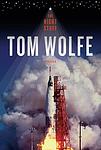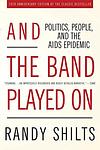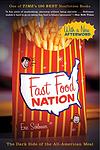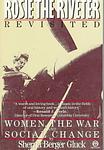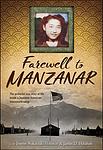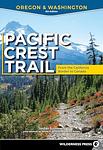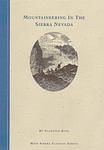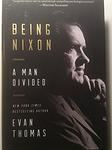The Greatest "American History, California" Books of All Time
Click to learn how this list is calculated.
This list represents a comprehensive and trusted collection of the greatest books. Developed through a specialized algorithm, it brings together 300 'best of' book lists to form a definitive guide to the world's most acclaimed books. For those interested in how these books are chosen, additional details can be found on the rankings page.
Genres
The "American History" category encompasses a broad range of books that delve into the events, figures, and forces that have shaped the United States from its pre-colonial days to the present. This genre includes works on pivotal moments such as the American Revolution, Civil War, and civil rights movements, as well as studies of political, social, and cultural developments across various eras. It covers biographies of influential leaders, analyses of policy changes, and examinations of societal shifts. Whether providing comprehensive overviews or focusing on specific incidents or decades, books in the American History category aim to illuminate the complexities of the nation's past, offering readers insights into the events that have defined the American experience and the context for its ongoing evolution.
Countries
Date Range
Reading Statistics
Click the button below to see how many of these books you've read!
Download
If you're interested in downloading this list as a CSV file for use in a spreadsheet application, you can easily do so by clicking the button below. Please note that to ensure a manageable file size and faster download, the CSV will include details for only the first 500 books.
Download-
1. The Right Stuff by Tom Wolfe
"The Right Stuff" is a non-fiction novel that explores the lives and experiences of the first Project Mercury astronauts selected for the NASA space program in the 1960s. The book delves into the personal and professional lives of these astronauts, highlighting their courage, competitiveness, and the immense pressure they faced. It also provides a detailed account of the space race between the United States and the Soviet Union during the Cold War era.
-
2. And the Band Played On by Randy Shilts
This book is a comprehensive chronicle of the emergence of the AIDS epidemic in the United States in the 1980s. It explores how the disease was initially ignored by many health professionals and politicians, leading to its spread and the deaths of thousands of people. The book also examines the impact of the disease on the gay community and the role of various institutions, including the medical community, the media, and the government, in responding to the crisis. It's a powerful critique of the indifference and negligence that allowed the disease to become a global pandemic.
-
3. Hell's Angels by Hunter S. Thompson
This book provides an immersive exploration of the infamous motorcycle gang, the Hell's Angels, as seen through the eyes of a journalist who spent a year living and riding with them. The narrative delves into the lifestyle, mindset, and public perception of these notorious figures, offering a raw and unfiltered look into their world. It also examines the wider cultural context of the 1960s, including societal anxieties and the counterculture movement, and how these factors intersect with the Hell's Angels' existence.
-
4. Fast Food Nation by Eric Schlosser
This book is an in-depth exploration of the fast food industry in America, examining its history, business practices, and impact on society. The author investigates the industry's influence on America's economy, health, and culture, revealing disturbing facts about the production process, the exploitation of workers, and the health risks associated with fast food consumption. The book serves as a critique of the fast food industry and its detrimental effects on American society.
-
5. Rosie The Riveter Revisited by Sherna Berger Gluck
This book offers a historical exploration of the lives and legacies of the women who stepped into traditionally male-dominated industrial roles during World War II, symbolized by the iconic figure "Rosie the Riveter." Through a series of interviews and personal narratives, the work delves into the experiences of these women, examining the challenges they faced, the societal expectations of the time, and the impact of their wartime labor on gender roles. It also addresses the aftermath of the war, including the push for women to return to domestic life, and the long-term effects on the feminist movement and labor rights. The book serves as both a tribute to these trailblazing women and a critical reflection on the evolution of women's work and rights in America.
-
6. Fear and Loathing on the Campaign Trail '72 by Hunter S. Thompson
This book is a visceral, first-person account of the 1972 presidential campaign, as seen through the eyes of a maverick journalist. It blends political analysis, cultural commentary, and personal anecdotes to capture the chaotic spirit of the election that pitted incumbent President Richard Nixon against Democratic challenger George McGovern. The narrative is infused with the author's signature gonzo style, characterized by a highly subjective and often satirical approach to journalism. Through a series of articles originally written for a major magazine, the book delves into the machinations of political operatives, the mood of the American electorate, and the dark underbelly of the campaign trail, all while grappling with the broader implications of the American political system.
-
7. Factories In The Fields by Carey McWilliams
"Factories in the Fields" is a seminal work that exposes the harsh realities faced by migrant farm workers in California during the early 20th century. The book provides an in-depth analysis of the agricultural industry, revealing how it operates much like an industrial factory, exploiting laborers who toil under severe conditions for minimal wages. It highlights the social, economic, and political challenges these workers encounter, including racial discrimination, inadequate housing, and lack of legal protections, drawing attention to the urgent need for reform in agricultural labor practices and policies.
-
8. Farewell to Manzanar by Jeanne Wakatsuki Houston, James D. Houston
"Farewell to Manzanar" is a memoir that tells the story of a Japanese-American family's experiences in internment camps during World War II. The narrative follows the young protagonist as she grows up in the camps, dealing with the harsh realities of racial prejudice and forced displacement. The memoir offers a deeply personal and poignant perspective on a dark period in American history, highlighting the resilience, strength, and dignity of the human spirit in the face of adversity.
-
9. The California And Oregon Trail by Francis Parkman
This book is a vivid historical account of a 19th-century journey across the American frontier, detailing the author's experiences while traveling from the Missouri River to the Rocky Mountains and onward to the Pacific Coast. The narrative captures the rugged beauty of the landscape, the hardships faced by pioneers, and the complex interactions with Native American tribes. The author's observations provide a rich portrayal of the untamed West, offering insights into the daily life, culture, and spirit of adventure that characterized the era of westward expansion.
-
10. The Words Of César Chávez by César Chávez
This book is a collection of speeches, essays, and reflections from a renowned labor leader and civil rights activist who dedicated his life to improving the working conditions and lives of agricultural workers. Through nonviolent tactics and powerful rhetoric, the author articulates his vision for social justice, emphasizing the importance of community, nonviolence, and the struggle for equality. His words offer insight into his philosophy and the principles that guided his efforts to organize farm workers, leading to significant advancements in labor rights and inspiring future generations of activists.
-
11. Mountaineering in the Sierra Nevada by Clarence King
This book is a collection of personal accounts and observations about climbing in the Sierra Nevada during the late 19th century. The author details his experiences, including the physical and mental challenges, the breathtaking beauty of the landscape, and the thrill of exploration and discovery. He also provides insightful commentary on the geological features of the region, the indigenous people he encountered, and the impact of the Gold Rush on the environment and society.
-
12. Nixonland by Rick Perlstein
"Nixonland" is a detailed historical account of the political and social climate in America from the mid-1960s to mid-1970s, focusing on the rise and fall of President Richard Nixon. The book explores the divisive issues of the time, including the Vietnam War, civil rights, and the Watergate scandal, and how Nixon's manipulation of public fears and prejudices led to a new era of American conservatism. It also delves into the impact of these events on American politics and society, creating a landscape that still resonates today.
-
13. Trampling Out The Vintage by Frank Bardacke
"Trampling Out The Vintage" is a comprehensive historical account of the United Farm Workers (UFW) movement, focusing on its charismatic leader, Cesar Chavez, and the broader labor struggles of farm workers in the United States. The book delves into the intricacies of union politics, the challenges of organizing in the agricultural sector, and the impact of Chavez's leadership style on the movement's trajectory. It provides a detailed examination of the UFW's rise to prominence in the 1960s and 1970s, its successes and setbacks, and the complex dynamics between workers, union leaders, and growers, offering a critical analysis of the factors that shaped the labor landscape in American agriculture.
-
14. Being Nixon by Evan Thomas
This biography delves into the complex and often misunderstood life of a pivotal American president, exploring both his notable achievements and his notorious downfalls. Through meticulous research and insightful analysis, the book paints a nuanced portrait of a man who was deeply ambitious yet plagued by self-doubt and a craving for approval. It sheds light on his significant contributions to foreign policy, including détente with the Soviet Union and opening relations with China, while also not shying away from the darker aspects of his presidency, such as the Watergate scandal that ultimately led to his resignation. By examining his personal and political life, the book attempts to understand the paradoxes of his character, offering readers a comprehensive view of a figure who has often been vilified or misunderstood.
-
15. River Of Shadows by Rebecca Solnit
"River of Shadows" explores the transformative impact of the 19th-century photographer Eadweard Muybridge on technology, art, and society. Muybridge's pioneering work in capturing motion prefigured the development of cinema and influenced the pace and perception of modern life. The book delves into his personal history, including a dramatic murder trial, and his professional achievements, such as the famous photographic sequences of animals and humans in motion. Through Muybridge's story, the narrative connects the burgeoning technology of the American West with broader cultural shifts toward the rapid, fragmented visual experiences that characterize contemporary life.
Reading Statistics
Click the button below to see how many of these books you've read!
Download
If you're interested in downloading this list as a CSV file for use in a spreadsheet application, you can easily do so by clicking the button below. Please note that to ensure a manageable file size and faster download, the CSV will include details for only the first 500 books.
Download